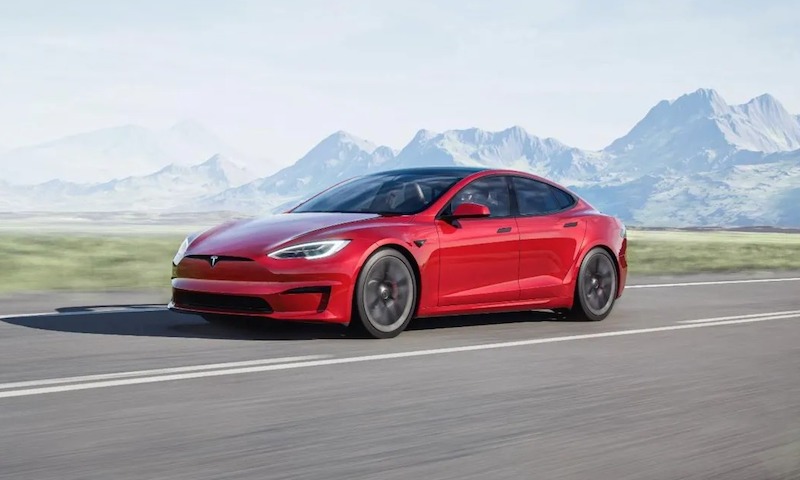Tesla and BYD, two leading electric vehicle manufacturers, have set new sales records in the second quarter (April till June) solidifying their positions as the world’s top-selling electric car makers.
Tesla, led by Elon Musk, exceeded expectations by delivering 466,140 cars globally, while BYD, China’s leading car brand, achieved its best-ever quarter with 700,244 fully electric and plug-in hybrid vehicle sales.
Both companies experienced a surge in stock prices, with Tesla rising over 6% in premarket US trading and BYD jumping as much as 5% in Hong Kong. Additionally, EV battery suppliers Contemporary Amperex Technology Co. Ltd. and LG Energy Solution Ltd. also saw share price increases.
Tesla sets quarterly delivery record
Tesla exceeded expectations with its second-quarter vehicle production and delivery report for 2023. The company delivered a total of 466,140 vehicles and produced 479,700 vehicles during the quarter, indicating an 83% year-over-year increase in deliveries.
Analysts had expected Tesla to deliver 448,350 cars in the June quarter, making the actual figure a significant beat.
“It’s a big beat,” Ben Kallo, a Robert W. Baird analyst, said. “People were still bracing for another round of price cuts, and this big delivery number makes that less of a risk.

Tesla’s strong performance is attributed to increased manufacturing capacity and production at its Austin, Texas plant. The company does not provide specific model or regional delivery numbers. Wall Street had anticipated deliveries of 445,924 for the quarter, and Tesla’s discounts and incentives in the US, particularly on the Model 3 and older models, aimed to boost sales.
Tesla’s financial results for Q2 will be announced on July 19, 2023.
Challenge for traditional automakers
While Tesla dominates the US electric vehicle market, it faces stiff competition worldwide from companies with more recent vehicle lineups. In China, which is Tesla’s second-largest market, BYD has emerged as a formidable competitor as its fully electric vehicle sales gained momentum, nearly doubling from a year ago to 352,163 units in the second quarter.
Tesla’s commitment to increasing sales volume, even at the expense of profitability, poses a challenge for traditional automakers who have lagged behind in the electric vehicle market. Volkswagen AG, for instance, recently announced new leadership for its Audi brand after falling behind Tesla in the first quarter, which ended March 31.
Chinese EV maker’s epic rise
Chinese electric vehicle manufacturer BYD is rapidly catching up to Tesla in global electric car sales. Backed by Warren Buffett, BYD has transitioned from selling gasoline cars to focusing on hybrids and all-electric vehicles. In 2021, BYD shipped around 320,000 pure electric vehicles and is expected to exceed that number in 2022 with an estimated 800,000 EV shipments. The company’s total sales increased by 98% compared to the previous year, and it achieved a new monthly record of 251,685 new energy vehicle sales in June
Despite its impressive growth, BYD has not yet surpassed Tesla, which recorded 908,573 deliveries worldwide through September. However, signs of Tesla losing momentum in China and BYD’s diverse vehicle lineup and battery manufacturing capabilities position it as a potential EV sales leader in the future.
BYD launches its new electric SUV
Chinese electric car manufacturer BYD, backed by Mercedes-Benz Group, launched its most direct competitor to Tesla’s Model Y, the Denza N7 electric SUV. The Denza N7 received over 20,000 pre-orders and is priced between 301,800 yuan to 379,800 yuan ($41,680 to $52,452), directly rivaling Tesla’s Model Y price range in China.
The SUV boasts features such as fast battery charging, in-car entertainment, data privacy features, and an augmented reality head-up display. BYD’s Denza brand aims to penetrate the luxury SUV market, competing with high-end German brands. In June, BYD sold 128,196 battery-powered passenger cars, while Tesla sold about 42,500 cars in China.